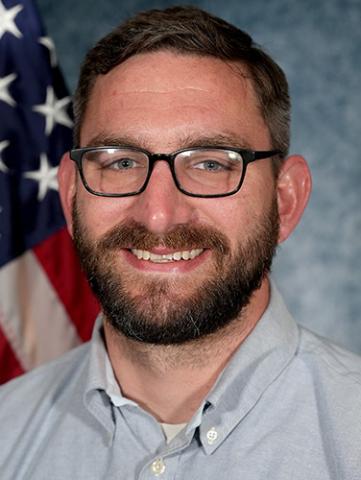Alumni Supports Veterans Experiencing Homelessness Before and After a Natural Disaster

Right after graduating with his Master of Social Work degree in 2015, Jerry Kivett-Kimbro moved to North Carolina and made his home in Asheville. After working two years at a rape crisis center supporting survivors of sexual violence, he transitioned back into the area he was most passionate about – supporting people experiencing homelessness.
“I have been drawn to work with people experiencing homelessness since my time at FSU,” he shared. “Homelessness in America, in particular, was a class I took in undergraduate that really helped me understand homelessness as a housing and policy problem that is solvable.”
His internship experiences at both Big Bend Homeless Coalition’s transitional housing program and the Renaissance Community Center, now a part of the Kearney Center, solidified that this was the population for him.
Jerry spent five years supervising supportive housing teams with Homeward Bound of Western North Carolina before stepping into his current position as the supervisor of the U.S. Department of Housing and Urban Development Veterans Affairs Supportive Housing (HUD-VASH)at the Charles George VA Medical Center.
The Asheville HUD-VASH team includes interdisciplinary services provided by licensed social workers, registered nurses, a peer support specialist, and a substance use disorder specialist. His team serves more than 300 households in Buncombe County, North Carolina and almost 100 additional households in the surrounding rural counties.
“My favorite part of working with veterans experiencing homelessness is how unique and individualized the services are for each veteran, and the long-term relationships we are able to maintain,” Jerry enthused.
Addressing Housing Shortages After a Natural Disaster
“Finding housing is only the first challenge,” stressed Jerry. “Maintaining it can take highly intensive and collaborative services.”
Like many areas across the United States, one of the main barriers to securing housing for people experiencing homelessness in the Asheville area is the lack of affordable housing. Add to this the unique challenges facing veterans, such as mobility-related needs and PTSD, which creates even more limited options and creates barriers to get folks placed quickly. “Over 60% of our program is over the age of 60. It can be challenging to get veterans all the resources they need in the home to maintain housing independently,” he explained.
The unexpected and disastrous effects of Hurricane Helene on large areas of the Appalachian Mountains impacted millions of residents, losing access to water and sewer, electricity, telecommunications, and healthcare services. These challenges were compounded even more for populations, including people experiencing homelessness.
For Jerry and his team, this includes 20 veterans who were displaced from their homes, most of them permanently. This also meant that their list of veterans needing new housing doubled overnight. Providing emergency resources for clients and even his own team was a new level of stress for everyone.
“We have observed veterans’ mental health symptoms sharply spike after the storm including depression, PTSD and anxiety as roads were closed, community resources shifted/changed, and many businesses remained closed,” Jerry reflected.
Despite all of these challenges, Jerry noted just how uplifting it was to see his team rise to the occasion to support their community. “My team consistently inspired me by showing up every day to support veterans and each other in what has been one of the most challenging times of our lives,” he reflected.
Community partnerships were an essential part of the recovery process, not only to get veterans emergency housing such as hotel rooms but also to identify all veterans in their homes and provide them with basic supplies such as food and clean water.
The Asheville and surrounding communities continue to slowly regroup and recover, and Jerry’s dedication to his team and clients remains strong.
“The stories you hear from these individuals and the bonds you create while getting someone into housing is truly a humbling experience that I have grown as a person and social worker from, and would not trade for any other career field,” he concluded. “As soon as I started with this major at FSU, I knew this was the career field I had been looking for and never looked back
